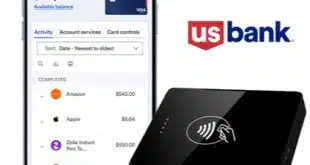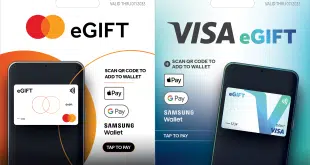While a compromise hammered out on Monday moderates some of the impact of the so-called Durbin Amendment, at least one payments expert has no doubt who emerges as the winners of this latest parliamentary maneuvering: merchants. Indeed, despite some concessions, banks are still likely to see considerable erosion of the estimated $15 billion they earn annually on debit card interchange fees. “Even with the changes, there’ll be a huge impact on retail debit card issuers,” says Eric Grover, principal of Menlo Park, Calif.-based Intrepid Ventures and a former Visa Inc. executive. “Most debit card interchange will go away.”
Bidding to shore up support for his amendment as House and Senate conferees prepare to take it up as part of far-reaching financial-services reform legislation, Sen. Dick Durbin, D-Ill., announced modifications that exempt from regulation reloadable prepaid cards and income earned from acquirers by Visa Inc. and MasterCard Inc. Durbin last month won bipartisan support in the Senate for a proposal that would charge the Federal Reserve with controlling debit card interchange fees. The amendment, attached to the Senate’s version of financial-industry reform legislation, has no counterpart in the House of Representatives’ version and has been the object of furious lobbying by merchants and banks alike.
Durbin’s original language included a so-called carve-out for interchange on cards issued by financial institutions with less than $10 billion in assets. Now, certain processing fees that flow into the coffers of Visa Inc. and MasterCard Inc., rather than to issuers, would also be exempt under the new language—a major concession to the card networks. “The brutal impact on the networks goes away,” says Grover.
These fees, known as network fees, are paid by acquirers and passed on to merchants. They are small by comparison to interchange but have risen in recent years, a trend that has rankled big retailers but has been of less consequence to small merchants, Grover says. “This is something Walgreen, Wal-Mart, and Target care about a lot,” he notes. The new language withdraws the exemption, however, if the card networks pass any of the funds on to issuers to offset their loss of interchange income under the amendment.
But banks did win one key concession: the Fed would be allowed to consider fraud-prevention costs in determining limits on interchange. The original language confined the Fed to considering only actual processing costs. Still, Grover argues, even with fraud-fighting costs included, the practical difference will be small, leaving issuers with drastically reduced interchange. “Whatever that [Fed] number is, it’ll be significantly below current levels,” he says.
Monday’s other major concession was to exempt cards issued by state and federal governments to distribute benefits. Also exempted are reloadable prepaid cards, which are often—but not always—adopted by unbanked consumers. Lobbyists for both cards had worried that Durbin’s amendment, by crimping the flow of interchange income, would force banks to raise the costs of prepaid and government card programs.
Lobbyists for the banks and the card networks greeted the changes in the amendment with skepticism, with the Electronic Payments Coalition calling them a “so-called” compromise. “The fact that [Durbin] has to carve anyone out to provide ‘protection’ from his amendment gives some indication as to the damage this amendment will cause,” the group said in a statement.





